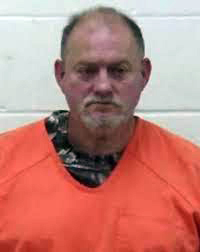
ULAANBAATAR, Mongolia (BP)–It took Daniel White* and his family about a week to reach their new home in the Mongolian countryside. They traveled in a four-wheel vehicle, bypassing sheep and goat herds, to haul family possessions to this remote spot. He selected an adobe-walled plot in a small town for their home — price tag: $500.
Over the next few weeks, he and his wife, Allison,* and their daughter, Mandy,* built an outhouse, located a water source and commissioned the building of a family ger, a round, white house made of felt stretched over a wooden frame.
When their nomadic Mongolian neighbors returned that fall, they took note of the Whites’ move into the area. In beginner’s Mongolian, the Whites quelled suspicions over their rumored status as Russian spies.
Moving to the Mongolian countryside was the answer to Daniel’s question — “What’s the hardest job nobody wants to do?” Mongolia team leader Jeffrey Dawes* answered: Nomads.
“As a believer, I’ve always been called to the edge,” Daniel said. “This is a very joyful place to be. It’s a hard place. If you make a mistake, you pay for it. But we’re where we’re called to be.”
Aerial views of this rural area justify Mongolia’s reputation as the least densely populated country on earth.
Most people live in the bustling capital city of Ulaanbaatar. Few choose to forfeit hot showers and restaurants to build a life in the wind-swept countryside, among approximately 1.5 million nomads and village dwellers.
On a plain surrounded by mountains, the Whites’ ger almost looks like any other in the community. A stove pipe extends from the tent’s centered top hole. The Whites’ additions include carpet and a storm door. Neighbors consider their recently constructed canvas outhouse — complete with a wooden seat — to be a novelty.
Life begins each day at 6 a.m. when the ger’s ceiling opening begins to reveal daybreak. Creeping from a futon bed, Allison begins stoking the wood-burning stove. The bedtime fire has long since burned out and in February, with minus 40-degree temperatures outside, the indoor air is below freezing.
Allison studies Scripture, fuels the fire, starts coffee and cuddles 7-year-old Mandy until she falls back asleep. A “from scratch” cook, she serves the family biscuits and eggs before calling their 16-year-old son at school in Thailand using a cellular Internet service Daniel calls a miracle.
The rest of Allison’s day is a flurry of teaching Mandy, studying language, visiting neighborhood women, cutting wood, gathering water from the creek, cooking meals and washing dishes.
“Day to day, there’s a lot of work involved,” Allison said. “The repetitive nature, the redundancy. You do all these things every day. That can be a challenge sometimes.”
The family takes showers once a week in a larger town — a 40-minute drive each way — where they buy groceries.
Since moving to Mongolia in 2006, Daniel has sawed off the end of two fingers, gotten a splinter in his eye, had his gallbladder removed and stabbed his foot with a sewing needle — just to name a few accidents. Most recently, while helping a neighbor move a cow across the frozen river, he tore the ACL in a knee when the animal fell on his leg.
Daniel uses a cane for support and struggles to drive the family’s Unimog — an extreme-duty vehicle that can plow through 40 inches of water and up a 30-degree incline.
During a visit to a neighboring Muslim family, the Whites drink traditional milk tea as they sit around a fire. Men round up camels and horses for riding. Women prepare sheep meat taken from their herd. It’s a sacrifice after a hard winter when only 150 sheep and goats were born out of an expected 200.
Before eating from a community pot, Daniel asks to give a prayer. The grandfather follows Daniel’s prayer with one of his own, using his hands to demonstrate the “washing” of God’s blessings over his head.
Daniel sees prayer as an opening into lives. So is a conversation about the man’s grandson named Isa (Jesus).
“Muslims are open to prayer,” Daniel said. “They may not always understand, but they appreciate when somebody takes time to pray for them.”
Chuluun,* a Mongolian, is Daniel’s right-hand man. The Whites asked Chuluun’s family — his wife, Odval,* two daughters and young son — to move from the regional capital to help them with the Mongolian language and rural life.
The family agreed, setting up a ger within the Whites’ hasha (yard). The girls now speak in English, and Mandy responds in Mongolian. The language doesn’t come as easily for Allison and Daniel because they have a harder time sorting it out from the ones they already know — it’s her seventh language and his sixth. The Whites previously served in West Africa and Southeast Asia.
Odval is teaching Allison to cook Mongolian delicacies, including horse and camel dishes. Together, Allison and her believing friend have started a ger church with their children.
“This is the edge of lostness,” Daniel said. “There’s not another church for 2,000 miles to the north of us.”
Chuluun and Daniel focus on community development, strategizing ways to expand their village’s crop production beyond potatoes and carrots three months a year. They combat 1,000-year-old agricultural techniques as White strives to plant spiritual lessons into his conversations.
“Our strategy for working with these people is a needs-based strategy,” he said. “Helping them could only show them God is a God who cares.”
As the ice-capped river melts, the Whites watch their nomadic neighbors load gers onto camels for the journey to their summer locations. Electricity is cut off for the season.
However, each September, power returns to the valley. As herds lead families back to this countryside town, the waiting light from the Whites’ ger leads them home.
–30–
*Name changed. Dea Davidson is a writer for the International Mission Board.
















